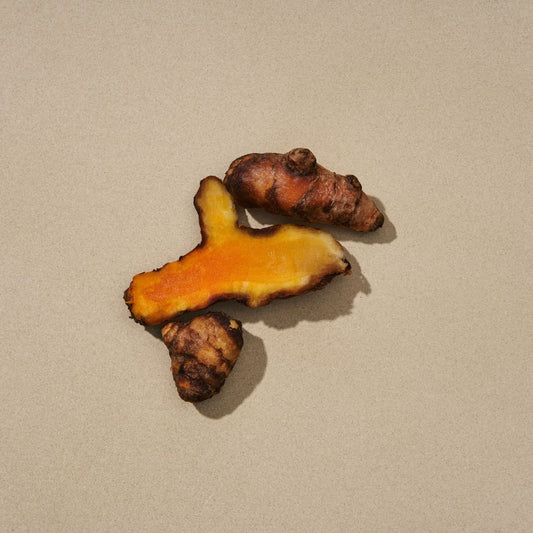It might have been around for thousands of years but, when it comes to Ayurveda, the water is still a little cloudy. You see, from diets to doshas, you’re certainly not alone if you’re struggling to get to grips with Ayurvedic medicine.
But fear not. Here, we shed light on this holistic lifestyle and explain how you can use it in your day-to-day routine.
What is Ayurveda?
In short, Ayurvedic practices focus on the link between general health and wellness with the mind, body and spirit.
It isn’t just a new buzzword on the scene either. In fact, it dates back thousands of years and was first found in The Vedas - the earliest recordings of texts. Here, it was written that if Ayurveda was used in diet, oils, herbs and exercise, people would be healthy and free of disease.
Put simply, Ayurvedic practices believe that the body has three main energies, also called doshas. Everyone has the same three types - vata, pitta and kapha - but they are made up in different amounts. For example, one person might have more vata tendencies than the other.
The makeup of our individual doshas impacts how we respond to things - including stress and foods - and has a wider effect on our overall body and health. Ready to learn about the doshas in more detail? Read on…
What are the three doshas?
-
Vata Dosha (represented by air and space) impacts your breathing, heart function and muscle movement. It’s also said to control feelings of fear, anxiety and pain. Those who are dominant in this dosha are always on the go. But if you’re suffering with an imbalance, you may be feeling overstressed. A more rigid routine, meditation or yoga can help you to feel grounded though.
-
Pitta Dosha (represented by fire and water) is said to control the metabolic, endocrine and digestive systems. For this reason, those who are pitta dominant will usually be able to digest food easier than others. But, if there’s an imbalance in your pitta, you may experience burnout or anger. Cooling showers and being close to water can help to calm you.
-
Kapha Dosha (represented by water and earth) is believed to control your body’s immune system and emotional responses. For this reason, those who are dominant in this dosha will be calm, focused and forgiving. An imbalance can lead to weight gain, loss of mo-jo, stubbornness and jealousy however. Self-care is hugely important as well as mental stimulation and mindfulness activities.
To find out which dosha you are, take our dosha quiz.
How to incorporate Ayurvedic practices into your daily routine
Suffering with bloating, anxiety, fatigue, spots, or even bad temper? It could be that your doshas are imbalanced. Occasionally, this can get better on its own but, to stop it from recurring, you might want to consider adding Ayurvedic practices in your day-to-day life.
-
Get up earlier
Ancient science and medical practices believe that waking up early and carrying out fulfilling exercises can help you to be more grounded, calm and focused. Ayurvedic practices also believe that you should try and do the same thing at the same time each day, including going to bed and waking up. It’s all about being up with the sun.
-
Use a tongue scraper
You’d be forgiven for thinking that these nifty little tools were a new craze in 2021. But, the truth is, they’re actually an Ayurvedic practice. Not only does a tongue scraper remove bacteria and boost oral hygiene but it stops nasty toxins from entering the body and supports healthy digestive systems
-
Eat mindful foods
Depending on your dosha, certain foods should be eaten to help balance your mind, body and soul. Ayurvedic cooking centres on hearty, wholesome and warm foods with anti-inflammatory ingredients like turmeric and ginger. Consuming too much meat and eggs can have a wider impact on stress and anxiety.
Ayurvedic foods and ingredients
Whether cooking or searching for a supplement to take daily, there are certain herbs and spices which play a huge role in the Ayurvedic approach. Since ancient Indian times, they've been believed to protect your body and mind from disease and provide a number of other health benefits, including boosted immune systems and improved digestion.
Below are some of the most popular herbs and spices to look out for, many of which you’ll find in our Deja supplements.
-
Ashwagandha - this small woody plant which can be found in India and North Africa contains adaptogens. Put simply, it can help your body and mind to manage stress, and also reduces levels of cortisol. Some studies also show that it can help to improve sleeping patterns.
-
Triphala - An ancient remedy made up of three medicinal fruits, Triphala has been shown to reduce inflammation that’s caused by arthritis as well as acting as a natural laxative to aid digestion.
-
Cumin - A common store cupboard ingredient, few realise just how effective cumin can be when used daily. It’s said to boost digestive systems while reducing bloating and pain.
-
Turmeric - Packed with anti-inflammatory and antioxidant properties, turmeric can help with all manner of symptoms including pain, digestive issues and generally feeling poorly.
-
Ginger - The main compound in ginger, gingerol, helps with pain and swelling and also reduces inflammation. For this reason, it’s been used in Ayurveda practices for thousands of years.
The benefits of Ayurvedic medicine
Ayurvedic approaches aren’t just great for those leading a holistic life but they also have tried-and-tested benefits. From better heart health and reduced inflammation to improved sleeping patterns and stable weight loss, it can help you to lead an all-round healthier lifestyle.
At Deja, we have a selection of natural supplements that take inspiration from these ancient Indian beliefs. Designed to help you to regain balance, control and focus, we have capsules for your mind, gut and immune system. As Shubhra Krishan said, “The Ayurvedic route to great health involves two simple steps: Doing less and being more.”




